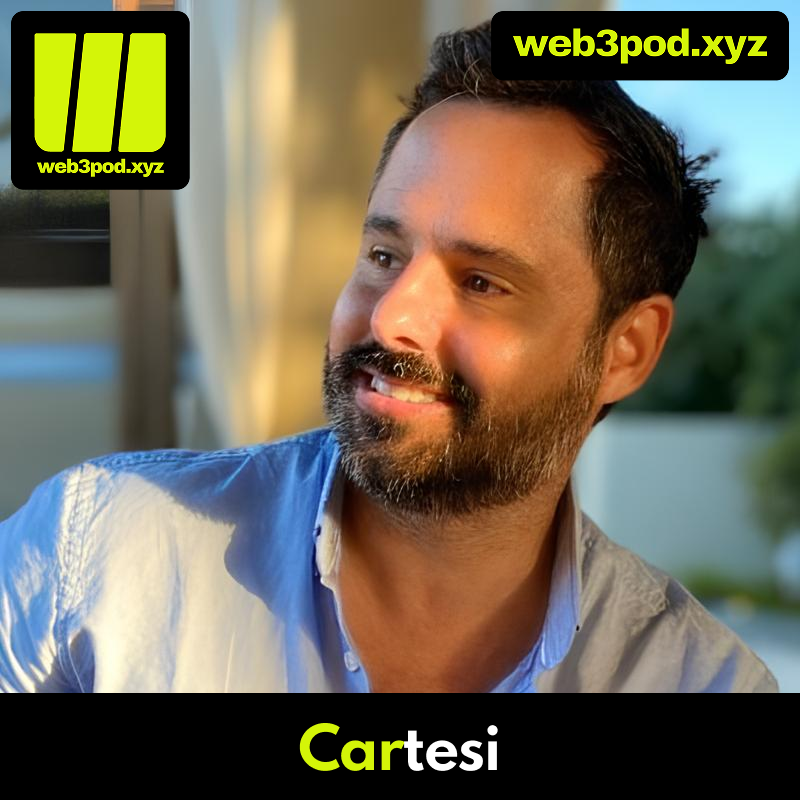The future of decentralized cloud computing: Lessons from Flux with Davy Wittock

The decentralization dilemma: cost, control, and credibility
The idea of decentralization is often more idealistic than implementable — but Flux is one of the few projects trying to change that. As Davy explains early in the episode, the mission is simple yet ambitious: democratize cloud hosting by making it affordable, censorship-resistant, and developer-friendly.
But what sets Flux apart isn't just its infrastructure; it’s the philosophy behind it. Rather than compete with giants like AWS or Azure head-on, Flux is building a parallel system — one that's distributed, community-driven, and incentivized through blockchain-based economics.
“Cloud should be for everyone, not just corporations with deep pockets.” – Davy Wittock
Beyond compute: a full Web3 infrastructure stack
Flux goes beyond being just another decentralized hosting provider. They're crafting a complete suite of tools designed for modern developers:
- Decentralized compute and storage
- FluxOS for dApp deployment
- Single Sign-On (SSO) that’s privacy-conscious
- Fiat payment options for broader accessibility
This last piece is especially critical — many Web3 tools still lack onramps for non-crypto-native users. By offering fiat integration, Flux lowers the barrier for onboarding businesses and developers who aren’t ready to go full crypto.
Where Web2 meets Web3: hybrid models are the future
One of the most thoughtful insights Davy shares is that the future isn’t Web3 versus Web2 — it’s a hybrid of both.
He outlines a growing need for collaboration between traditional Web2 companies and decentralized systems. Hybrid solutions allow companies to maintain familiar workflows while gaining the resilience and neutrality of decentralized infrastructure.
“We're not trying to replace Web2. We're trying to improve it.” – Davy Wittock
This collaborative approach is what might finally unlock mainstream adoption — not just ideology, but interoperability.
Simplifying the user journey
No matter how robust the backend is, user experience remains one of Web3’s most stubborn pain points. Flux acknowledges this and invests heavily in creating smoother experiences through:
- Simplified deployment interfaces
- Wallet-optional sign-ons
- Transparent resource usage and billing
This shows that they’re not just building for Web3 maximalists — they’re building for everyone who’s frustrated with the complexity of cloud deployments.
Regulatory fog and building through uncertainty
As with any Web3 venture, regulation remains a looming question. Davy doesn’t shy away from this. He points out that decentralization doesn’t automatically make a platform immune to legal gray areas — but it does build resilience.
By distributing hosting and governance, Flux limits single points of failure, both technically and legally. But it’s a space that still demands proactive engagement — with regulators, users, and the broader Web3 ecosystem.
Flux Labs: supporting the next wave
Beyond infrastructure, Flux is also investing in the next generation of builders. Through Flux Labs, the organization supports early-stage projects — providing not just tools, but mentorship, visibility, and community support.
Whether you're a developer looking to deploy, a researcher exploring decentralized systems, or just curious about the next phase of the internet, Flux Labs offers a launchpad that’s grounded in practical support, not just promises.
Getting involved
For anyone looking to dive deeper:
- Explore their products at RunOnFlux.io
- Learn about AI integration at FluxEdge.ai
- Join the developer community on GitHub
- Follow their updates on Twitter/X
- Connect with Davy on LinkedIn
- Or explore roles, collaborations, and community events via Flux’s LinkedIn
And of course, you can always reach out or pitch yourself as a podcast guest at Web3pod.xyz




